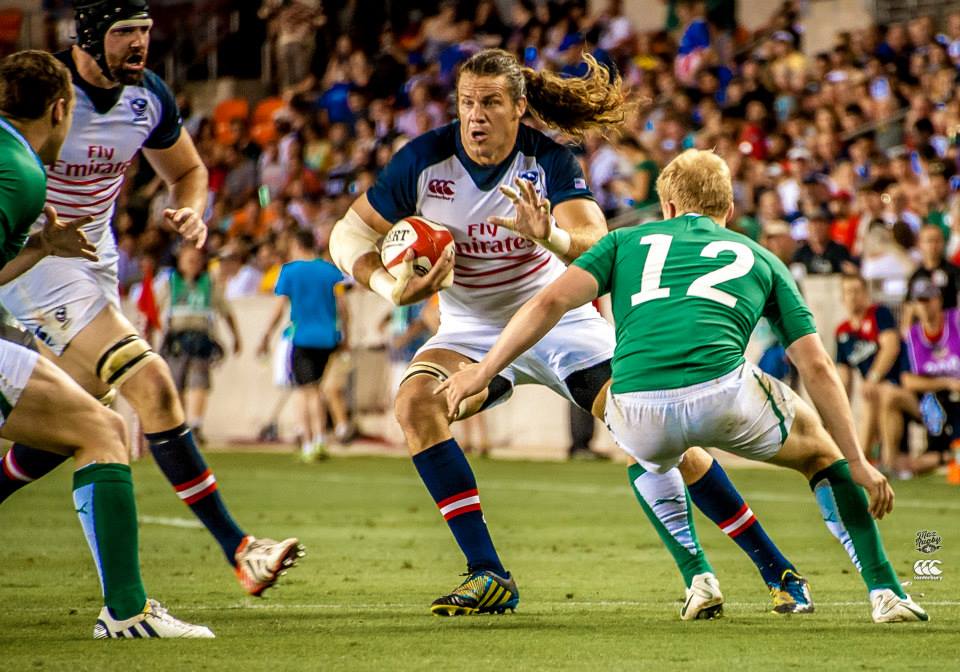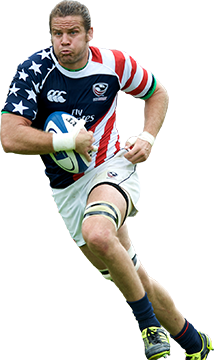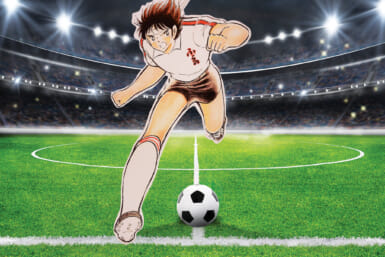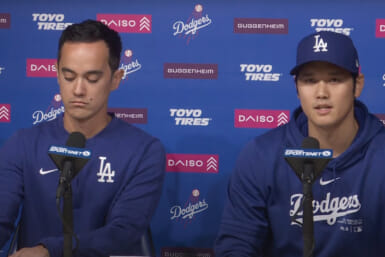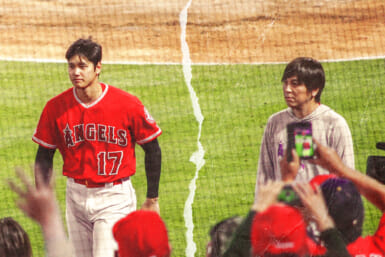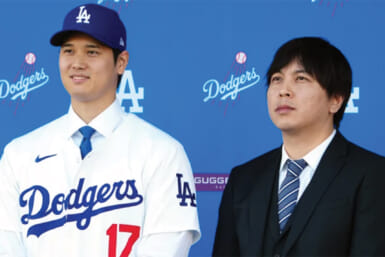If you happen to run into a taller-than-average man around Tokyo with long, curly brown hair that would make any man, woman or hair model envious, look carefully: it might be rugby legend Todd Clever.
By Sami Kawahara
Captain of the US National team, and the first American ever to play in the elite Super Rugby league, Clever chose to spend his prime rugby years competing in Japan’s Top League.
Clever was born and raised in California, but unlike his American football or baseball-playing teenage peers, he chose a different path growing up. After watching his brother play in high school, Clever decided to play competitive rugby in addition to high school football.
Although rugby is far less popular in the states than it is in Europe and the Southern Hemisphere, club rugby in California gave Clever the chance to travel the world while still in high school. As a three-time All-American at the University of Nevada, Reno, Clever was selected to play on the US National team, which allowed him to gain worldwide exposure and grab the attention of coaches from the best leagues in the world.
In 2006, Clever began his professional career in New Zealand, before receiving the opportunity to play in the sport of rugby’s elite league—Super Rugby—for the South African Lions in Johannesburg in 2009. He was the first and only American to play in this league, and he was named captain of the US National team in 2011.
During a successful season in the Super Rugby league, Clever suffered an injury that would require surgery. Although he still had a year left on his contract in South Africa, Japan coach Eddie Jones reached out. “I had an offer from Eddie Jones saying ‘have surgery, rehab back in Japan and play two seasons.’ I was only planning on staying two years and then going back to South Africa, but I just really enjoyed it here and it worked out really well with my schedule with the US team,” Clever says. Four years since that conversation with Jones, Clever is still playing in Japan.
Life in Japan
When Clever first moved from Johannesburg to the countryside of Fuchu, Japan, in 2010, things were a bit different. “It was a big culture shock. I really enjoyed it but it was just different. There was a big language barrier at the time.” This inspired Clever to begin learning Japanese. For the first two years, playing for Suntory Sungoliath, Clever used a translator to communicate with his coaches and teammates. But thanks to the combination of Clever’s Japanese study and an English-language environment being encouraged on his new team, the NTT Shining Arcs, Clever now does well without a translator.
Although the level of competition is high in Japan’s Top League, the way the league runs is very different from Super Rugby or the European leagues. The 16 teams in the Rugby Top League are corporate owned, and many of the players on the team are employees of that company as well. “These guys put in some long hours. Japanese work ethic is second to none; it is incredible,” Clever says. “They work for six hours, go to lunch, then train, then gym, then video.”
The style of play is also different in Japan. “It’s a different kind of rugby that they play here, especially compared to what I played last. In South Africa it’s a lot more physical and the players are a lot bigger.The skill level is a little higher too, but the Japanese skill is improving a lot. Physicality is maybe one aspect Japan has to get better at, but Japanese rugby is faster than any other rugby in the world. That’s why it’s exciting.”
When asked how else the Japanese league is different, Clever says that the fans’ politeness stands out: “It’s funny: when you’re warming up, it is so silent at the stadium, until someone does something like score a try or make a good break or tackle. Then people get excited. But for the most part, the fans are really intrigued and quiet and respectful. It’s just different from anywhere else in the world.”
With the season lasting from September to January and playoffs following, Clever was back to the States during the off-season to begin qualifiers for the 2015 World Cup. The US National team defeated Uruguay in late March to officially qualify for the World Cup in England, and will continue to compete in a pool with Japan, Scotland, South Africa, and Samoa. “It will be a tough one,” Clever says. “Scotland is first. We struggled with them when we played them last, but on neutral ground it will be a good contest. We lost by two points against Samoa last time, and South Africa with be tough too, but if we could target a few of those games and have good performances, there’s a possibility of doing really well.”
According to Clever, the future is also bright for the sport of rugby as a whole, and he says the number of US players is growing faster and faster. As for Clever’s immediate future, he has extended his two-year contract with the NTT Shining Arcs for one more year, giving us the opportunity to see Captain America, or Todzilla as many people call him, dominate the field in Japan. Or just catch those locks somewhere around town…
Favorite moment in your rugby career?
TC: At the 2007 Rugby World Cup, when we played one of the first games of the tournament. It was USA versus England, in France, but the whole place was English, singing their national anthem. The hype before the game was pretty incredible.
Best player you’ve played with and against?
TC: Both with and against is George Smith [Australian on Suntory Sungoliath]. Also against, is Jerome Kaino [American Samoan-born New Zealand Rugby union player]
Player to look out for on the US National team?
TC: One of the best players in the world right now is Samu Manoa. He played football and now plays rugby in England. He is one of the most exciting players and he’s up for Player of the Year in England.
Favorite and least favorite thing about Japan?
TC: My favorite: Japanese food, sushi, and the people are so respectful and kind. Least favorite: not owning a car.
CAPTAIN AMERICA: A CAREER IN NUMBERS
Birthdate: January 16, 1983
Height: 6 ft 4 in (1.93 m)
Weight: 220 lb (103 kg)
Position: Flanker
INTERNATIONAL CAPS: 54
No. of Starts: 53
International Tries: 11
Teams:
2006: North Harbour (New Zealand)
2009–2010: Golden Lions (Johannesburg, South Africa)
2010–2012: Suntory Sungoliath (Fuchu, Japan)
2013–Present: NTT Shining Arcs (Chiba)
International Debut: August 2003 vs. Argentina
Professional Debut: 2006

